Results
-
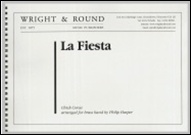 £40.00
£40.00LA FIESTA (Brass Band) - Corea, Chick - Harper, Philip
Chick Corea is an American pianist and composer of Sicilian and Spanish descent, whose long career in jazz music continues to this day. A member of Miles Davis's hand in the 1960s, lie formed his own band Return to Forever in the 1970s before establishing himself as one of the greats of modern jazz. La Fiesta was composed in 1972 and included on Return to Forever's debut album. The music is in one in a bar waltz time and switches between Latin carnival style and jazz waltz, with stand-up solos for cornet, baritone and tenor horn. This arrangement was performed as part 01 the Cory Band's winning Brass in Concert programme in 2012. The publisher of this works suggests that it should be playable by championship section bands.
Estimated dispatch 7-14 working days
-
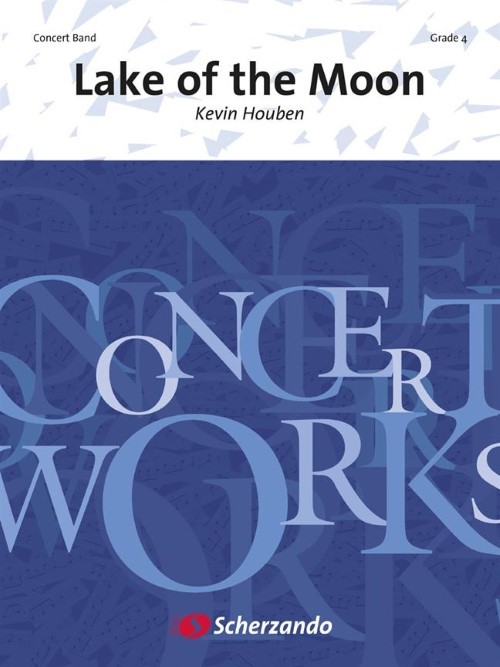 £104.99
£104.99Lake of the Moon (Brass Band - Score and Parts) - Houben, Kevin
3rd Section Test Piece 2016 National Finals of the British Brass Band Championship.The travels of the Aztec people as they headed south through North America looking for a new home, acted as the inspiration for Lake of the Moon. The composition contains small fragments of Oriental music and South American rhythms and occasionally, Russian Cossacks seem to raise their heads. The journey from North to South is not without danger, which is represented by threatening sounds within the music. In the Adagio divoto the composer takes us along to the Texcoco Lake, which the Aztecs called the lake of the moon. Bring a little bit of South American history to your concert with Lake of the Moon.Duration: 11:15
Estimated dispatch 7-14 working days
-
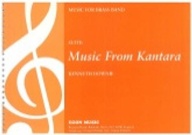 £24.95
£24.95MUSIC FOR KANTARA (Brass Band Extra Score) - Downie, Kenneth
4th Section Test Piece 2016 National Finals of the British Brass Band Championship. Music from Kantara was written in 1994 and was first performed by Watership Brass, a band based near Newbury. The title comes from the name of the former home of the composer, in Winchester, a name which was inherited from the previous owners, and which presumably comes from the ruined castle of that name on the Northern coast of Cyprus. The music is not programmatic: it does not tell a story. It is a three-movement suite of absolute music, in a tuneful and straightforward idiom. The slow, central movement calls for playing of a sensitive, vocal nature. Duration: 9:00
Estimated dispatch 7-14 working days
-
 £59.95
£59.95MUSIC FOR KANTARA (Brass Band Set - Score and Parts) - Downie, Kenneth
4th Section Test Piece 2016 National Finals of the British Brass Band Championship. Music from Kantara was written in 1994 and was first performed by Watership Brass, a band based near Newbury. The title comes from the name of the former home of the composer, in Winchester, a name which was inherited from the previous owners, and which presumably comes from the ruined castle of that name on the Northern coast of Cyprus. The music is not programmatic: it does not tell a story. It is a three-movement suite of absolute music, in a tuneful and straightforward idiom. The slow, central movement calls for playing of a sensitive, vocal nature. Duration: 9:00
Estimated dispatch 7-14 working days
-
 £42.95
£42.95MYTHIC TREVITHICK! (Brass Band) - Richards, Goff
Composed to mark the 200th anniversary of Richard Trevithick's momentous first journey in his steam locomotive. This event took place in the cornish town of Camborne, and it was 200 years later in 2001 that composer Goff Richards conducted massed local bands in the first performance of MYTHIC TREVITHICK! Following work in South America, Trevithick returned to his native Cornwall and, it is reputed, all the church bells rang out to greet him, an effect captured in the final bars of the piece. Duration: 4' 00' Recorded on Polyphonic QPRL222D And the Band Played On
Estimated dispatch 7-14 working days
-
 £59.99
£59.99Nostalgia (Brass Band - Score and Parts)
In this stunning work French composer Christian Bouthier has created a nostalgic French chanson, a form of song popularised by the ambassador of French song Charles Aznavour. The piece is characterised by a peaceful, moving melody filled with meditative sounds that encourage a blissful dreaminess. 03:53
Estimated dispatch 7-14 working days
-
 £59.99
£59.99Organ Fugue (Brass Band - Score and Parts)
To arrange one of the most beautiful organ fugues by the great classical composer Johann Sebastian Bach (1685-1750) for brass band is certainly a demanding task. Klaas van der Woude has however performed this feat to produce this excellent and exciting arrangement. Organ Fugue is suitable for any festive concert! 02:40
Estimated dispatch 7-14 working days
-
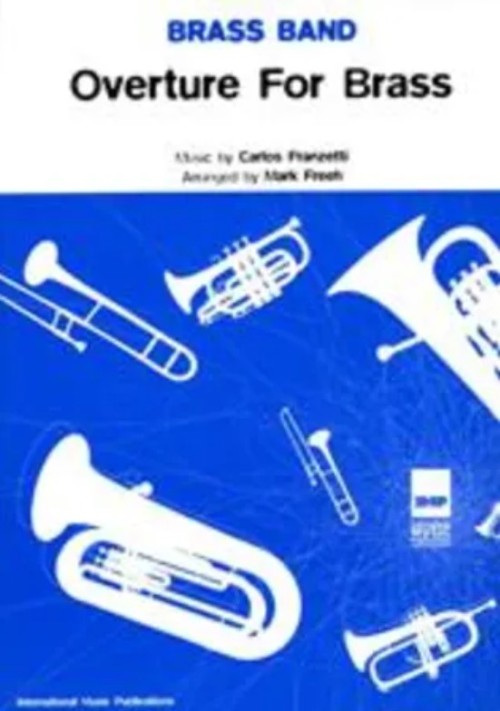 £39.99
£39.99Overture for Brass (Brass Band - Score and Parts) - Franzetti, Carlos - Freeh, Mark
From symphonies to big band jazz, and from chamber works to Latin American music and film scores, the music of Argentian-born composer and arranger Carlos Franzetti (b.1948) has won many prestigious awards. This exciting six minute overture, Overture for Brass, was arranged by Mark Freeh and has been recorded by the GUS Band, conducted by Bramwell Tovey.Suitable for Advanced Youth/3rd Section Bands and aboveDuration: 6.00
Estimated dispatch 7-14 working days
-
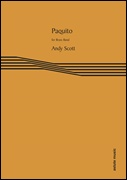 £24.95
£24.95PAQUITO (Cornet Section feature with Brass Band Parts) - Scott, Andy
Brass Band parts only. 'Paquito' pays homage to the brilliant composer/saxophonist/clarinetist Paquito D'Rivera. It is a fast salsa, based around a two-three clave pulse, and is virtuosic showcase for the cornet section. Dur: 3:00
Estimated dispatch 7-14 working days
-
 £15.00
£15.00PAQUITO (Cornet Section feature with Brass Band Score) - Scott, Andy
Brass Band score only. 'Paquito' pays homage to the brilliant composer/saxophonist/clarinetist Paquito D'Rivera. It is a fast salsa, based around a two-three clave pulse, and is virtuosic showcase for the cornet section. Dur: 3:00
Estimated dispatch 7-14 working days
